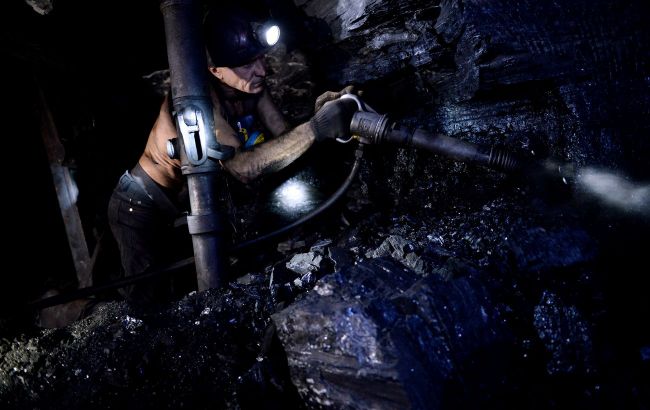Russia's coal industry collapses under sanctions and falling prices — FT
 Photo: Russia's coal industry is in its deepest crisis in 30 years (Getty Images)
Photo: Russia's coal industry is in its deepest crisis in 30 years (Getty Images)
Russia's coal industry has become one of the main economic casualties of the full-scale war against Ukraine. Sanctions, rising costs, and falling global prices have led to the sector's worst crisis in 30 years, the Financial Times reports.
According to Russia's official statistics agency, the industry's losses in the first seven months of the year amounted to $2.8 billion — twice as much as in all of 2024.
A prominent Russian entrepreneur told the Financial Times that the war is bad for most Russian businesses, if not all, but the coal sector is suffering the most.
Massive losses and mine closures
Although coal contributes less than 1% to Russia's GDP and budget revenues, it provides jobs for more than 140,000 people. In several regions, the industry remains a crucial source of employment and tax income.
Vladimir Korotin, CEO of the company Russian Coal, told Interfax that the coal industry is experiencing its sharpest crisis since the 1990s, putting thousands of jobs and regional tax revenues at risk.
According to Russia's Ministry of Energy, by September 23, coal companies — about 13% of the total — had already shut down operations, while another 53 were on the brink of closure.
Causes of the crisis and price collapse
Global prices for thermal coal in 2025 have dropped to multi-year lows as production reached record levels in China, the world's largest coal producer and consumer.
A ton of coal now costs around $93, down 78% from the 2022 peak. Russian producers are being forced to sell coal at large discounts due to sanctions and export challenges.
Financial Times calculations based on Argus data indicate that at the start of 2022, Russian coal prices were 60% below global levels. However, the gap later narrowed to around 20% as trade flows stabilized.
Logistical problems and overloaded railways
A sharp increase in domestic railway transport costs has worsened the industry's condition. More profitable cargo, such as oil that used to go to Europe, is now being redirected to other destinations, creating severe congestion on routes connecting coal regions to ports.
Experts note that no one expected such a deep crisis immediately after the invasion began, when coal and energy prices surged. Now, the sector faces plummeting profits, mine closures, and growing social tensions in Russia's mining regions.
Earlier, Reuters reported that freight volumes on Russian Railways in 2024 fell to a 15-year low. A shortage of workers and locomotives has further strained capacity.
The war against Ukraine and sanctions are hitting the Russian economy hard. From railways and automobiles to metals, coal, diamonds, and cement — some of the country's largest industrial companies are sending employees on unpaid leave or cutting jobs.

